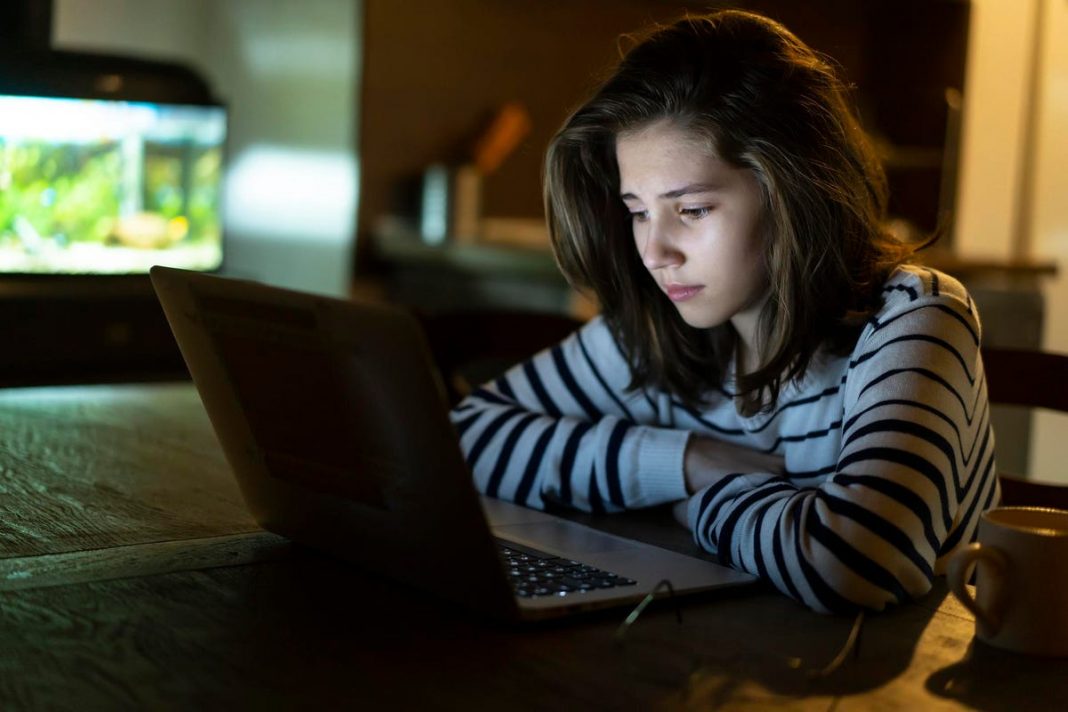Protecting girls online is paramount.
getty
Today is International Day of the Girl, a day of observance established by the United Nations General Assembly to recognize girls’ rights and the unique challenges they face around the world. This year’s focus is internet safety as the UN and Plan International USA call on our national leaders to act so that all girls have access to the internet, and are safe when using it.
UN Women has reported a global rise in the online harassment of women and girls since the onset of the coronavirus. More time spent online for education, career and socializing has provided more time for bullies and trolls to target, harass and intimidate. The worldwide quarantines have also produced an outbreak in physical, sexual and domestic violence in what has been referred to as “The Shadow Pandemic.”
A recent Plan International survey of more than 14,000 young women and girls found that 58% of respondents have experienced online harassment, including abusive language and cyberbullying. It also found that 84% of women and girls think that online harassment is only getting worse.
Not only is the internet not the safest place for girls, it also isn’t the most fair or equitable. Girls are less likely than boys to have internet access at home, less likely to use and own devices and less likely to gain access to tech-related skills and jobs. The time is now for us to change the equation in the gender digital divide and keep our girls out of harm’s way.
Here are four action steps to take on this International Day of the Girl:
1. Create public awareness
The first step toward creating a safer online space is educating people about the detrimental effects online violence and/or harassment can have on its victims. Online harassment may include bullying, trolling, cyberstalking, defamation and hate speech, public shaming, revenge porn, identity theft and hacking.
According to UN Women, online violence against women and girls is associated with social and reproductive health effects, as well as psychological impacts such as “higher levels of anxiety, stress disorders, depression, trauma, panic attacks, loss of self-esteem and a sense of powerlessness in their ability to respond to the abuse.” Online harassment has often been connected to mass shootings, extremism and violence against girls and women. Read more in the State of the World’s Girls report, The Truth Gap.
2. Promote digital safety
It is important for women and girls to have tools in their online arsenal to keep them protected. These include: creating a strong password, having different passwords for different accounts, using two-factor authentication, logging out of accounts, not using public WIFI when sharing sensitive information and utilizing antivirus software.
If you or someone you know has experienced online harassment, here’s how you can log a digital complaint.
3. Call on policymakers to create cyber-safety laws
The law has yet to catch up with the internet; it’s a feedback loop. Law enforcement tells victims to report to the platform, and then, the platform tells you to go somewhere else.
Online gender-based violence is just as destructive as offline violence, but the difference is perpetrators are often able to commit violence without consequences. Around the world, girls are speaking up and asking their governments to take action and create cyber-safety laws.
In the U.S., Plan International is calling on President Biden to keep his campaign promise to convene a national task force on online harassment and abuse. By leveraging federal agencies, state leaders, advocates, law enforcement and technology experts, we’ll be better equipped to tackle harmful misinformation and disinformation that is spread online. The task force will focus on developing strategies and recommendations for how federal and state governments, social media companies, schools and other public and private entities can protect girls and women online. To show your support, sign the petition here.
4. Urge social media platforms to implement stronger reporting mechanisms
Many who have experienced online violence feel helpless when reporting the crime. Instagram has recently added a ‘Restrict’ anti-bullying tool that is designed to protect an individual’s account from unwanted interactions and problematic followers; it was designed for those who are less likely to report or block bullies, particularly young people. Let’s advocate for social media platforms to create more of these safeguards for users.
Girls around the world are being silenced by online abuse. Violence against women and girls is a human rights issue. This International Day of the Girl, let’s use our collective voices to educate others, advocate for action and make the internet a safer space.




